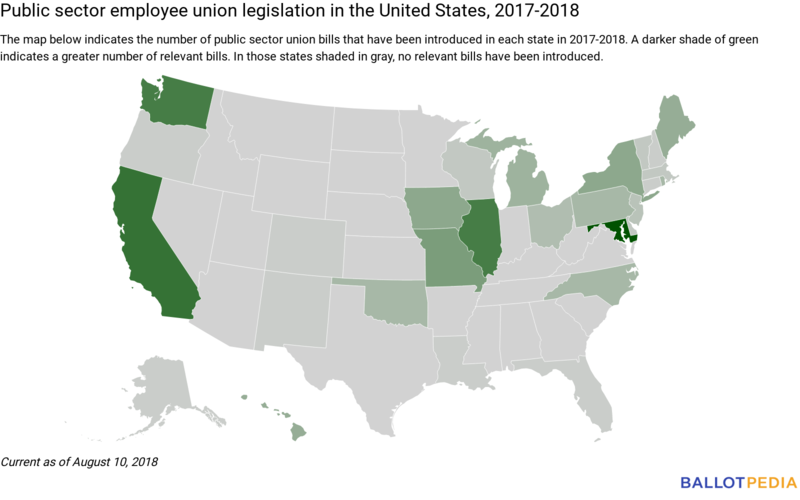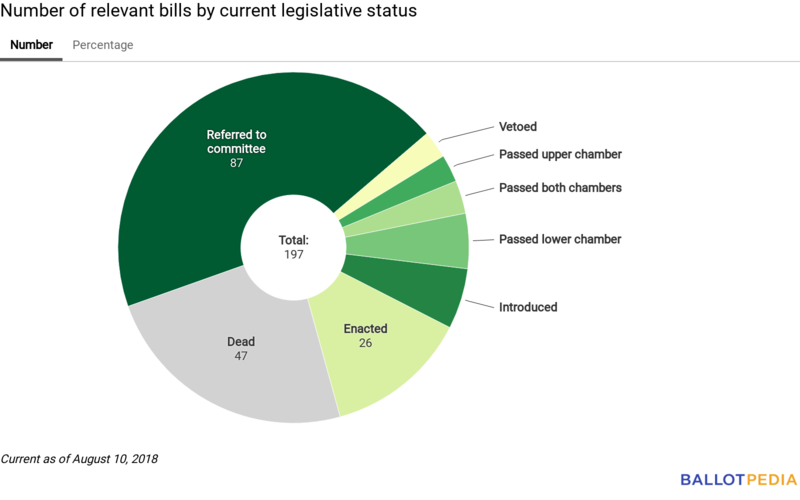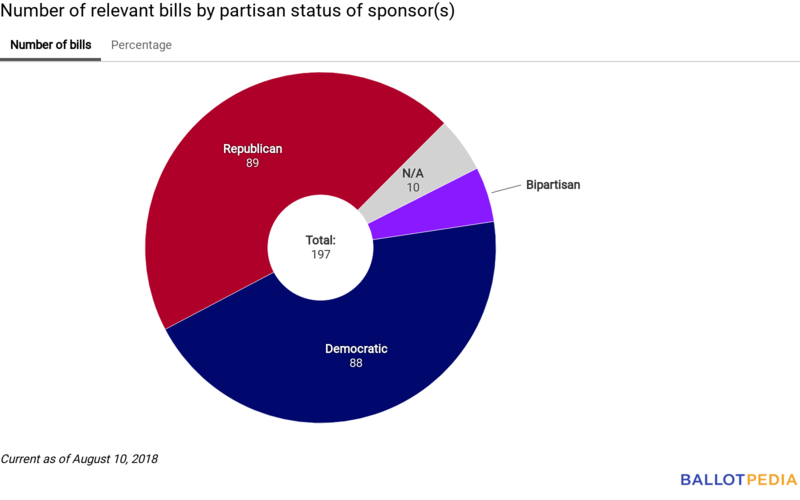Union Station: August 10, 2018
On June 27, the Supreme Court issued its 5-4 ruling in Janus v. American Federation of State, County, and Municipal Employees (Janus). The court ruled that public sector unions cannot require non-member employees to pay agency fees to cover the costs of non-political union activities. How are state attorneys general, generally responsible for providing legal advice to the states and enforcing state laws, responding to Janus?
This week, Democratic attorneys general in Connecticut, Pennsylvania, and Vermont issued guidance on public sector union rights and responsibilities post-Janus. George Jepsen (Conn.), Josh Shapiro (Penn.), and T.J. Donovan (Vt.) all said that public sector unions cannot deduct fees from the paychecks of non-members without their express consent. All three also said Janus does not affect other public sector union rights. (Sources: Hartford Courant, Office of the Pennsylvania Attorney General, Office of the Vermont Attorney General)
On Jan. 19, 2018, Jepsen, Shapiro, and Donovan, in addition to attorneys general in 17 other states and the District of Columbia, filed an amicus brief in opposition to Janus. They argued states are entitled to determine their labor policies and public sector union opponents "should not be permitted to constrain those options by constitutionalizing a single approach to public sector union relations for all state and local governments nationwide."
Membership update: According to Connecticut State Comptroller Kevin Lembo (D), agency fee deductions have been canceled for approximately 5,500 state employees whose aggregate agency fees from June to present totaled $129,544. As of Aug. 3, 41,101 of the state's 57,131 employees, or 71.9 percent, were dues-paying union members. (Source: Hartford Courant)
What we've been reading:
- The National Law Journal, "What Labor, Management Lawyers Say About Missouri's Right-to-Work Defeat," Aug. 8, 2018
- The Wall Street Journal, "Unions Take a Hit After Supreme Court Ruling," Aug. 5, 2018
- Connecticut Law Tribune, "Progressive Causes Suffer Under 'Weaponization' of First Amendment," Aug. 3, 2018
The big picture
States in session: As of Aug. 10, all but seven states have adjourned their legislative sessions. Only California remains in regular session. West Virginia is in special session. The Michigan, Pennsylvania, and New Jersey state legislatures are in recess. Ohio's state legislature is in skeleton session, and Massachusetts' legislature is in informal session.
Number of relevant bills by state
As of Aug. 10, we are tracking 197 pieces of legislation dealing with public sector employee union policy. One new bill was added this week. On the map below, a darker shade of green indicates a greater number of relevant bills. Click the map for complete information.
Number of relevant bills by current legislative status
Number of relevant bills by partisan status of sponsor(s)
Recent legislative actions
Below is a complete list of legislative actions on relevant bills in the past week. Bills are listed first by state and then by bill number. Because some state bill tracking systems are not updated in real time, some actions may have occurred more than a week ago.
- California AB1937: California law authorizes some public sector labor unions to request payroll deductions for union fees and dues. This bill would extend that authority to public sector labor unions representing employees of the Regents of the University of California, the Judicial Council, counties, cities, and public authorities.
- On Aug. 6, the Senate Appropriations Committee postponed a hearing on this bill.
- California AB2017: This bill would expand the definition of "public employer," in the context of the state's labor laws, to include employers of excluded supervisory employees and the Judicial Council not already covered by existing laws. The bill would also prohibit public employers from discouraging prospective employees from becoming union members.
- On Aug. 6, the Senate Appropriations Committee postponed a hearing on this bill.
- California AB2049: This bill would authorize school districts and community colleges to rely on labor unions when determining whether a request to discontinue payroll deductions for union dues is in conformity with the requirements established in the initial payroll deduction authorization.
- On Aug. 6, the Senate Appropriations Committee postponed a hearing on this bill.
- California AB2886: This bill would require employers and employees of the Orange County Transit District to present complaints of labor violations to the Public Employment Relations Board for adjudication.
- On Aug. 6, the Senate Appropriations Committee referred this bill to its suspense file, meaning that the bill was set aside and may be taken up at a later hearing.
- California AB3034: This bill would give employees of supervisory units of the San Francisco Bay Area Rapid Transit District the right to form and join unions.
- On Aug. 6, the Senate Appropriations Committee referred this bill to its suspense file.
- California SB1085: This bill would require public employers to grant leaves of absence without loss of pay or benefits to employees who serve as stewards or officers of an employee organization.
- On Aug. 8, the Assembly Appropriations Committee recommended the bill for passage. The bill has already cleared the Senate.
- Massachusetts S2644: This bill would restrict public access to personal information about state employees, including home addresses, email addresses, and telephone numbers. Employee organizations would have access to this information. Employee organizations would be permitted to require non-members to pay for the costs of grievance or arbitration proceedings. Public employers would be required to provide employee organizations access to employees, including the right to meet with employees on work premises. The bill also would alter the windows of time during which employees may choose to revoke payroll deductions for the payment of union dues.
- On Aug. 2, the bill was referred to the House Ways and Means Committee. The bill cleared the Senate July 31.
See also
| |||||||||||||||||||||||





